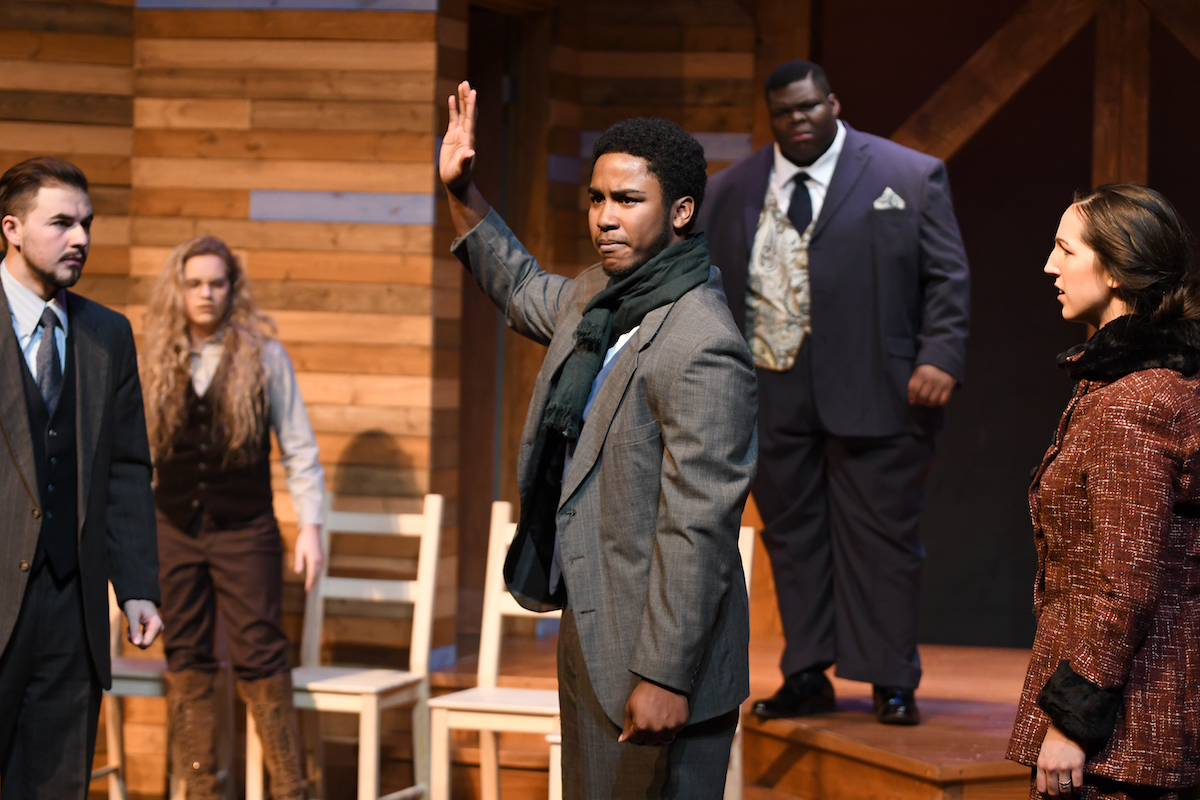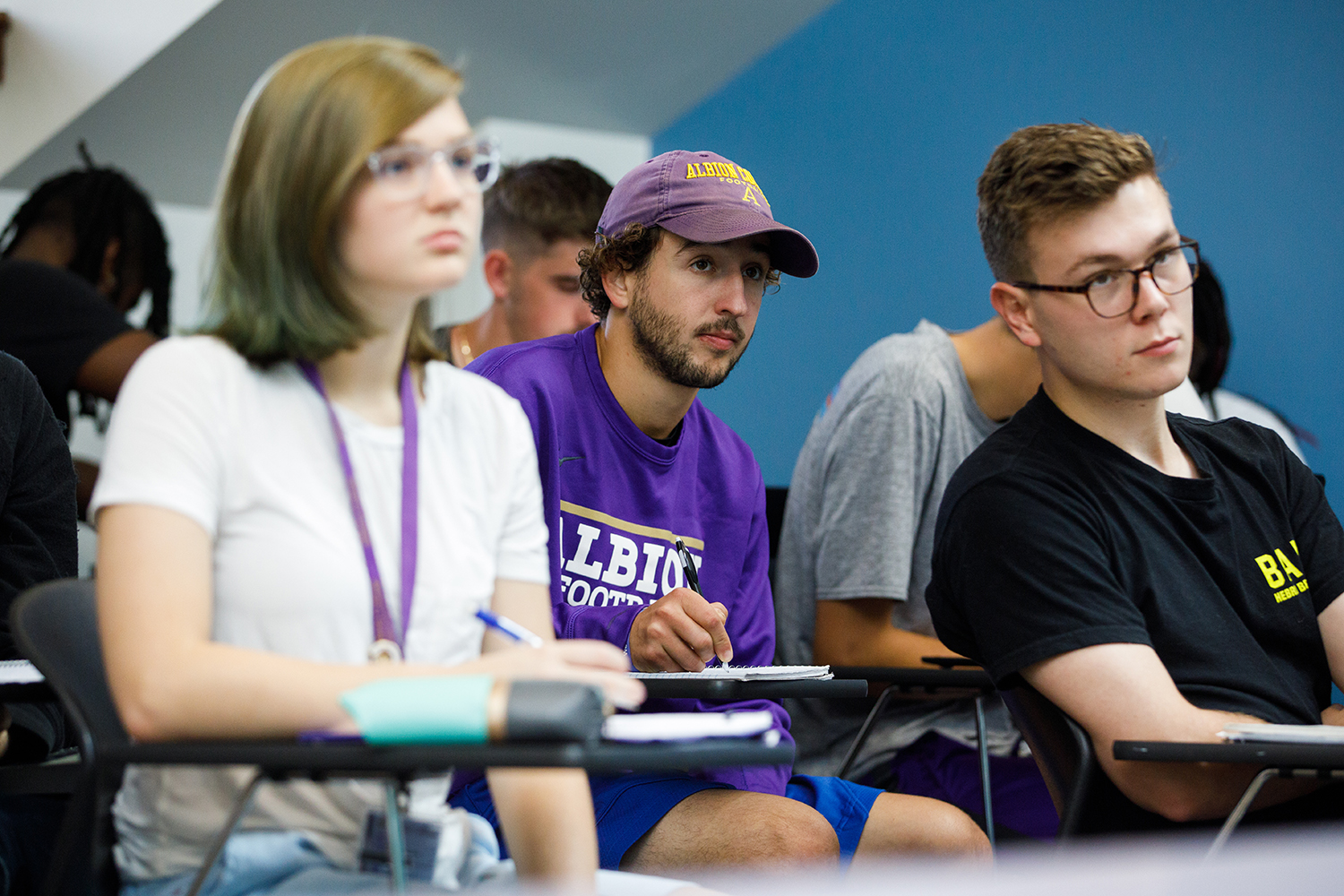Music Major
Turn your passion and talent into a vehicle for self-expression. Prepare for a career as an educator or performer. Or bring the discipline, knowledge and liberal arts foundation you’ll develop as a music major to any professional path you pursue.
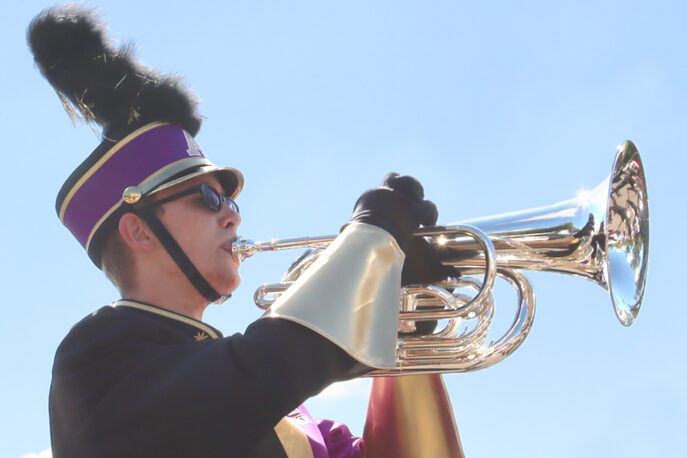
Why Study Music at Albion?
Our approach to music bridges disciplines, just like the art of music itself. As a music major, you’ll also study the science of music, drama, poetry, dance, historical and sociological trends, and religious and philosophical ideas. Whether you hope to pursue a career in music or simply want to develop as a musician, you can choose from multiple courses of study based on your interests and goals. Albion College is an accredited institutional member of the National Association of Schools of Music.
What Will You Learn as a Music Major?
Our program features a combination of theory, history and applied courses to improve your technical skills as a musician, as well as a creative and critical thinker.
In theory courses, you’ll learn the language of music, sight-singing, ear training and how to use technology to improve your practice.
In history courses, you’ll learn music from the ancient Greeks to the present day, with opportunities to pursue research on the composers and topics that interest you.
You’ll improve your playing and performing skills through music lessons and participation in at least one departmental ensemble.
Emphases
In addition to our standard music major, you can pursue specialized studies in music education or performance.
Music Major
Our eight-unit liberal arts music major is for students who have strong musical interests but who do not necessarily intend to pursue a full-time professional career in music.
Performance Emphasis
Our Performance emphasis prepares you for a career as a professional musician or private music teacher. If you’re thinking about pursuing graduate school in music, this emphasis will get you ready.
Teacher Certification
Interested in teaching? Pair your Music major with an Education Concentration to be eligible for your Michigan Department of Education teaching certificate.
Program Highlights
Ensembles
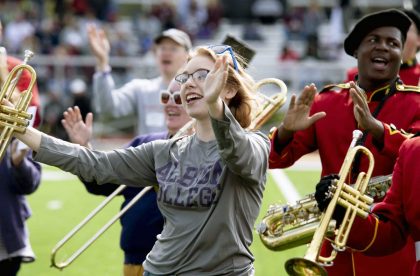
More than 150 students each year participate in ensembles directed by Department of Music faculty, including marching band, symphonic winds, jazz, symphony orchestra, concert choir, a cappella groups, an opera workshop and smaller chamber ensembles.
Scholarships

In keeping with the liberal arts tradition, we don’t require you to audition to be a music major. You can choose to apply and audition for our music scholarships by submitting a recorded audition.
Off-Campus Programs
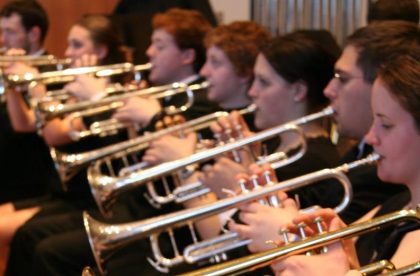
We offer many ways for students to experience music education across the country and around the world. You might intern in New York City with the Great Lakes Colleges Association or spend a semester at the Chicago Lyric Opera. Or perhaps you’ll polish your language and music skills by attending a conservatory or music school in Europe.
Careers & Outcomes
Whichever direction your career takes—in education, as a performer, in arts management—our program provides the necessary foundation for success. By learning and practicing within a liberal arts framework, you’ll graduate with a deep understanding of music and finely honed musical skills. Many of our music majors pursue graduate degrees. Below is a small sample of job titles and employers of recent alumni.
Job Titles
- K-12 Music Educator
- College Professor
- Music Director
- Orchestra Performer
- Music Administrator
Employers
- Coldwater Community Schools
- Albion College
- Dr. Richard Izquierdo Health and Science School
- Riverside Music Studio
- Utah Valley University
- Renaissance High School
- Hanover-Horton schools
